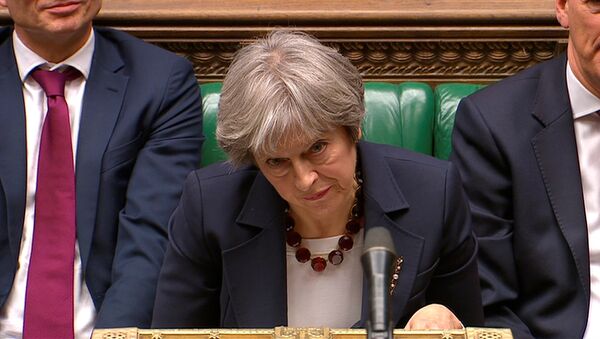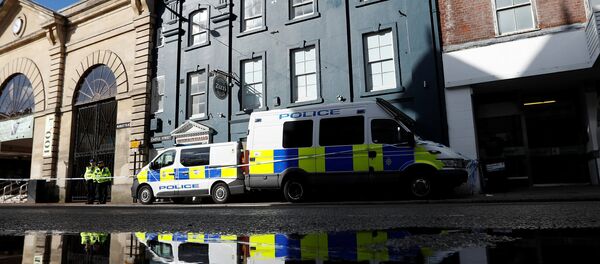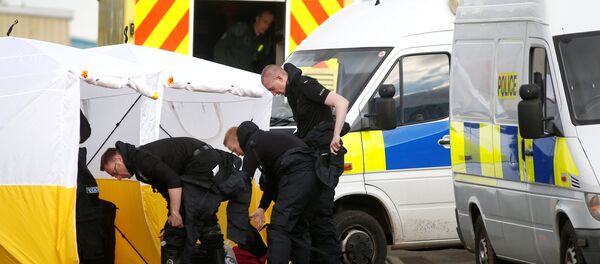During a dinner at the EU summit on March 22, UK Prime Minister Theresa May is expected to share secret intelligence data on the Skripal case with London's EU allies in a bid to prod them to tighten screws on Russia, according to Bloomberg.
It cited unnamed sources familiar with the matter as saying that May wants EU leaders to follow Britain's example by accusing Russia of Skripal's poisoning and taking action against Russia's intelligence agents.
READ MORE: 'Trying to Make Herself Look Good': Expert Explains May's Stance on Skripal Case
"The challenge of Russia is one that will endure for years to come. As a European democracy, the UK will stand shoulder to shoulder with the EU and NATO to face these threats together. United, we will succeed," May will say during the Thursday summit, according to preliminary transcript of the speech released by her office.
The European Council plans to approve a statement on Thursday that points out to the high possibility of Russia’s involvement in the poisoning of former Russian intelligence officer Sergei Skripal in the UK town of Salisbury, a diplomatic source told Sputnik.
The EU leaders are expected to discuss the relations with Russia at a working dinner in Brussels later on Thursday.
The UK authorities have not yet raised the issue of introducing additional sanctions against Russia in connection with the Salisbury incident, the source added.
The summit will come just a day after Vladimir Ermakov, head of the non-proliferation and arms control department at the Russian Defense Ministry, said in connection with the Skripal case that "either the British authorities are unable to protect [people] from a terrorist attack on their territory or they staged the attack themselves."
READ MORE: Labour Leader Under Fire From Party MPs for Stance on Skripal Poisoning
He stressed that Russia "can bear no responsibility for the actions or lack of actions on British soil," adding that the attack on the Skripals is a "gross folly," which is not beneficial to Russia.
Earlier, Theresa May claimed that it was "highly likely" that Russia was responsible for the March 4 poisoning of Sergei Skripal and his daughter Yulia in Salisbury, UK – an accusation that were vehemently rejected by Moscow.
In a tit-for-tat move, Russia announced that it would expel 23 British diplomats on March 17.




